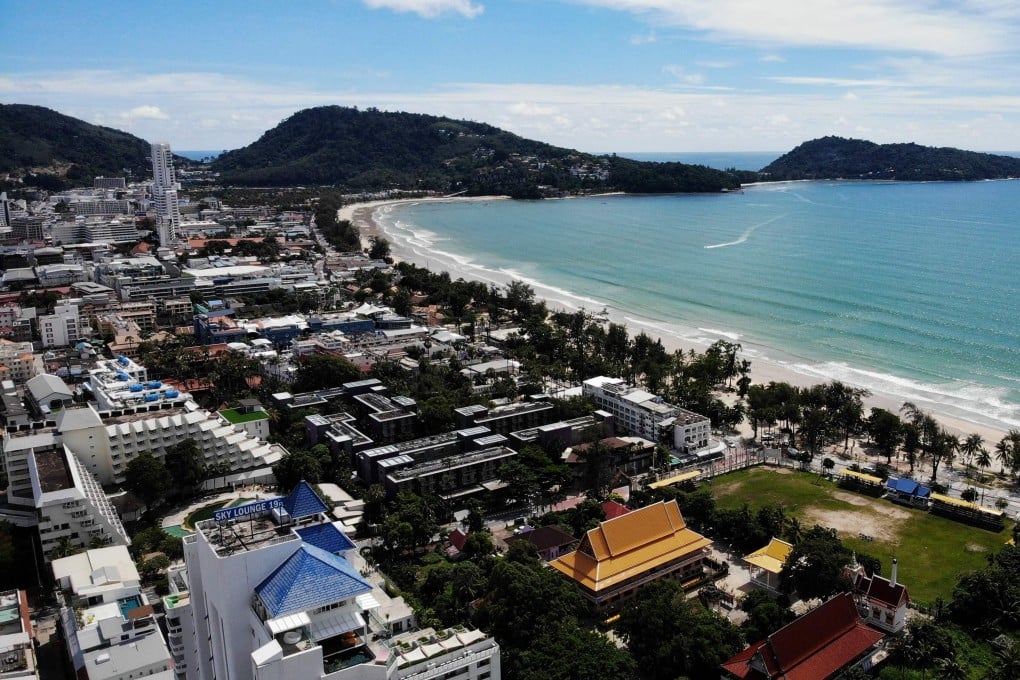Thailand approves Phuket ‘sandbox’ plan to allow vaccinated tourists in without quarantine
- Under the pilot scheme, over 70 per cent of the island’s population will be vaccinated before it reopens to tourists from certain countries on July 1
- But industry insiders hoping for a tourism boost fear the lucrative Chinese tour groups will not return until next year

Government spokesman Anucha Burapachaisri confirmed the cabinet had officially given the scheme its blessing.
But Chinese tourists – who made up over a quarter of Thailand’s 40 million visitors in 2019 – are not expected to return to the Andaman Sea island in substantial numbers for several months yet, as Beijing keeps in place safeguards to prevent the virus seeping back from overseas.
That suggests a slow restart, which will give Phuket time to rebuild its decimated tourism industry – from out of work tour guides and boat owners, to derelict restaurants and bars – and welcome back the first visitors to uncluttered beaches and resorts on what was the world’s most visited tourist island before the pandemic, according to TripAdvisor.
“The morale and motivation of the [Phuket] people has been lost … the sandbox offers hope and people are very excited,” said Ravi Chandran, managing director of Laguna Resorts and Hotels.
“The bookings are coming from the UAE, UK, Germany, America, Taiwan, and the Scandinavian countries. Anything from international tourism in July would be a bonus. We’re optimistic.”